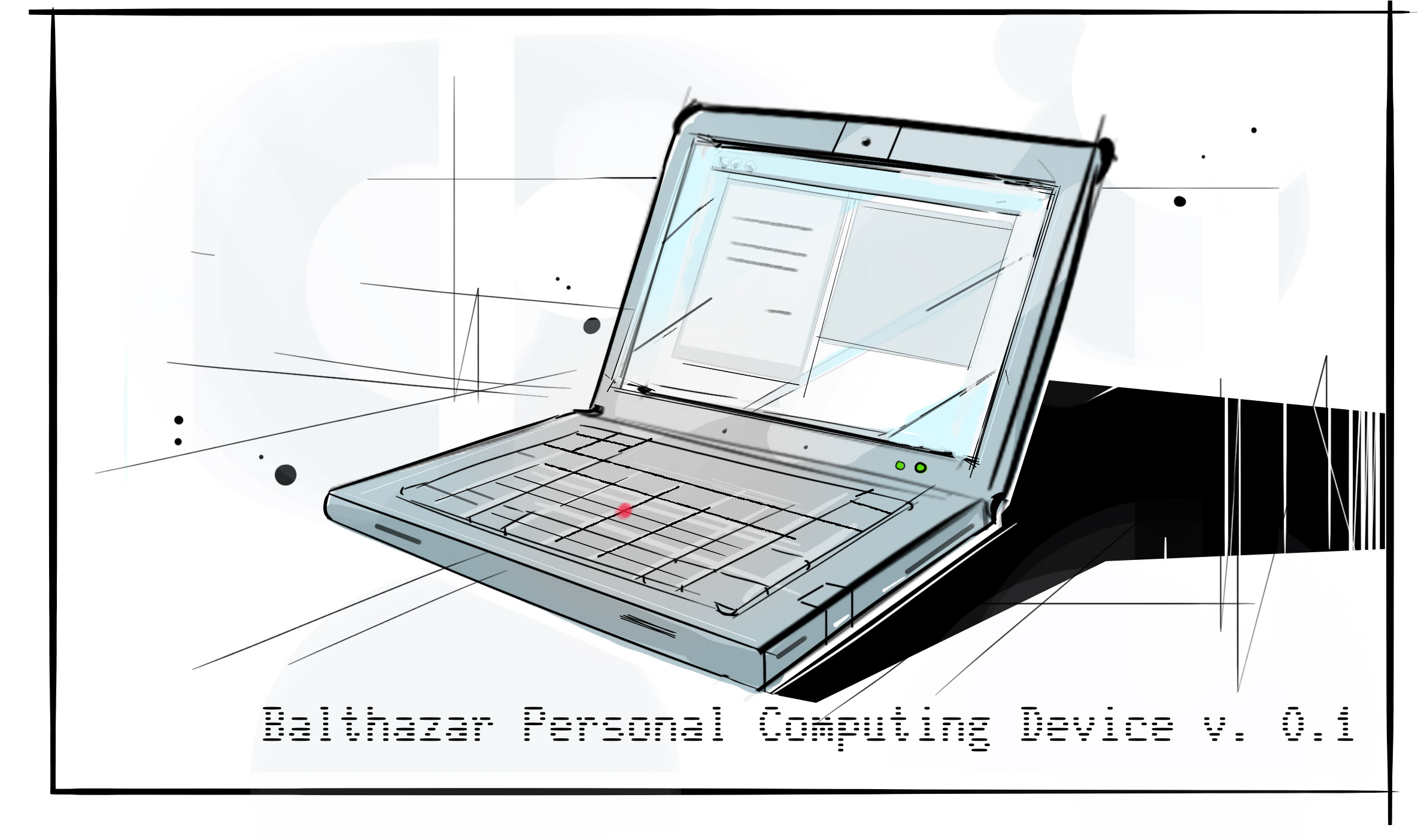a Personal Computing Device
One laptop for the new internet.
Secure, fast, inexpensive, open, robust, upgradeable and sustainable. All of that.
BPCD - Balthazar Personal Computing Device is a 13.3" upgradable and expandable laptop that is based on a few concepts inspired by EOMA68, but powered by RISC-V processor(s) open architecture that runs on Linux OS.
It contains all the hardware and continuously developing software and firmware features preventing data-theft and any unwanted 3rd party intrusion into the system by the default. Its default low-level security layer software based on Libreswan is also envisaged to be GNUnet ready.
While being versatile and robust it also strictly follows GNU-GPL, FOSS, EOMA, ISA and even CC guidelines.
What is all that FOSS and CC and OS..? → Glossary
Goals
- To enable end user to be careful and aware with their own personal data or a company data. In today’s internet age we need to know how to handle and use data protection, privacy and security, and additional physical and software safety bubble is a necessity.
- To run fully open source software stack, preferably a derivative of Debian GNU/Linux. This makes a large software library instantly available and provides updates. This can also be used as a base for “custom OS”, but not mandatory.
- To design inexpensive and innovative HW/SW where necessary and to use existing FOSS systems off-the shelf, partnering in a process with for an example The Libre-RISC-V SoC development or Arbor ARM based SoM. (System on the Chip or System on the Module), both supporting Linux Operating System
- To lead by example for other HW/SW manufacturers to open towards FOSS because we need more inexpensive laptops anyway. (300 Euros retail price point - or at maximum 100 Euros Manufacture Production Costs - MPC, volume pending)
- To support low income communities all over the planet, partnering with “humaine” corporations that will give-away/rent/borrow HW/SW packages to those who are unable to afford it. (LEGO® Education, Google, various other foundations and EU initiatives).
- To make computing more sustainable and reach eco friendly footprint
- To make granulated product that can be configured and upgraded at an affordable price.
- To make an educational product, as well as advanced computer user device.
Want to know more?
Please read the FAQ and the specifications and features.
